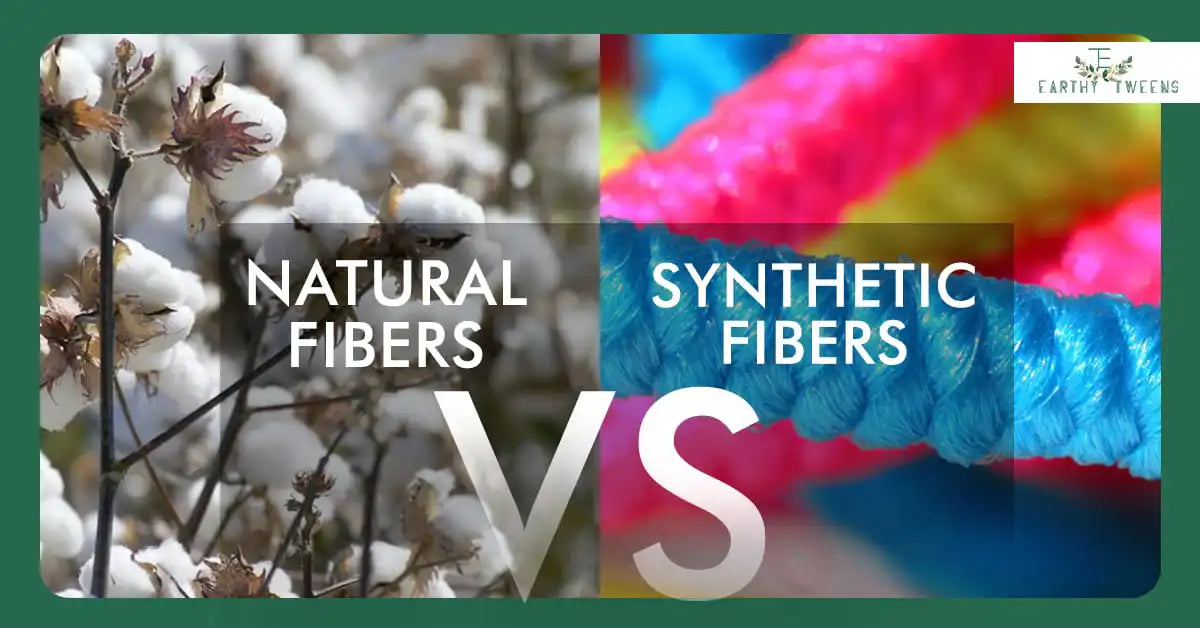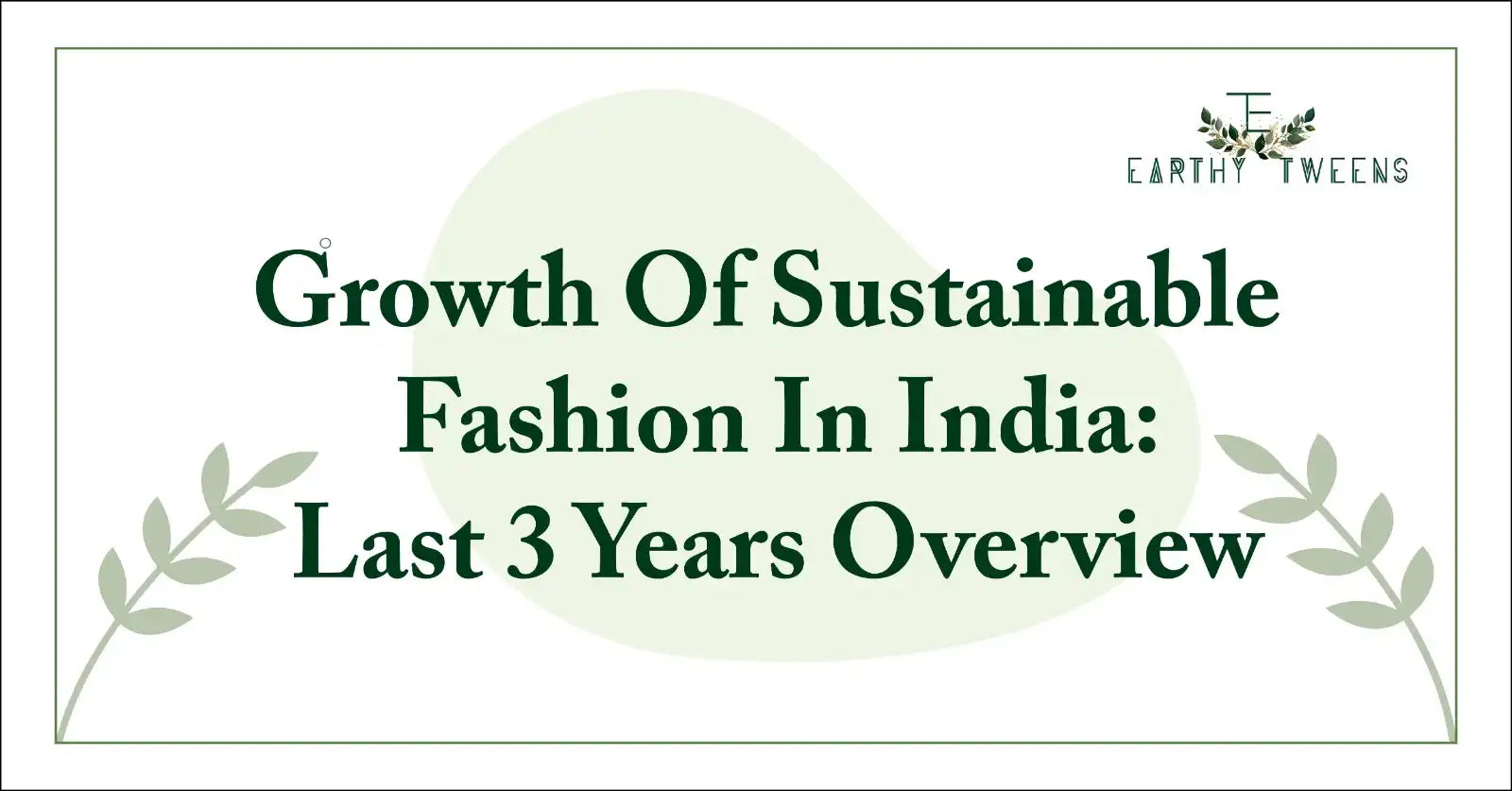The difference between natural and synthetic fibers is as simple as if someone asks you to determine a plastic bag from a dump of paper bags. Natural fibers are simply made of natural substances like plants, leaves, animal hair, and silkworms, but synthetic fibers are made of man-made materials like polyester, acrylic, and glass fibers. In this blog, the aim of Earthytweens is to equip you with the correct understanding of Natural Fibers vs. Synthetic Fibers. Here, we are providing you with the definition of fabrics, and further, we will give you insights into Natural Fibers and Synthetic Fibers to determine which one is better and why.
What is Fiber?
A fiber is a thin thread made of fine and composed substance, whether plant-based or synthetic (man-made). Fiber is often compared with fabric, but there's a subtle difference between these two terms. Fabric is woven with threads, which are the byproduct of Fibers.
Therefore, fabric is the result of finely woven fibers in the form of threads. A natural fabric indicates the quality of breathability, comfort, and hypoallergenicity. These qualities of natural fabrics create a high demand among customers to buy clothes made of organic cotton, bamboo silk, and linen.
What are Natural Fibers?
Natural fibers refer to animal hair and plant-based thread used in manufacturing clothes and other fabrics. They are usually extracted from eco-friendly substances like jute, bamboo, plant seeds (cotton fibers), and animal fur.
Types of Natural Fibers
There are two types of Natural Fibers mentioned in the blog:
Plant Fibers
Plant fibers refer to the post-stage fabrication process of plant seeds, fruits, leaves and wood. These are the most natural fibers that offer high breathability, comfort, and softness.
Animal Fibers
Animal fiber refers to the hair and fur of animals that are processed and weaved to make wool yarns. Making wool fibers is the most ancient way to create natural fibers. Animal fibers are good insulators for the human body. Especially for kids, wool is considered the best fabric in winter as it provides them comfort, softness and heat.
Silk also comes under the category of animal fibers, as it is made of silkworms. There is a complete process of making silk threads from the silkworms and silk clothes from the thread itself.
Examples of Natural Fibers
There are some common natural fibers that are used in making organic fabric and natural clothing materials. These fibers includes:
- Cotton
- Silk
- Hemp
- Sisa
- Wool
- Bamboo
- Jute
What is Synthetic Fiber?
Synthetic fibers are man-made fine threads manufactured under certain conditions. They are called artificial fibers and are also non-biodegradable. Synthetic fibers are concerned with plastic and petrochemicals. Synthetic fibers can be affordable and durable, but they serve as a backsole for Mother Nature as they lack environmentally friendly attributes.
Types of Synthetic Fibers
There are various types of synthetic fibers available for different purposes, from manufacturing clothing to other belongings like raincoats, jackets, shoes and many more. As we all have created a dependency on synthetic fibers, these have become very common and can be found in our everyday life essentials like ropes, buckets, furniture and food packaging. Some most commonly used types of synthetic fibers are:
- Polyester
- Nylon
- Rayon
Examples of Synthetic Fibers
These are some synthetic fibers commonly used in clothing and everyday essentials. These includes:
- Satin
- Fleece
- Acrylic
- Polyester
- Nylon
- Microfibers
Difference Between Natural and Synthetic Fibers
In essence, the difference between synthetic fiber and natural fibers is simple as Natural fibers are made of natural ingredients like animal hairs and plant seeds. While synthetic fibers come from a man-made manufacturing procedure. Cotton, silk and wool are some of the most common examples of natural fibers. Besides polyester, rayon and nylon are the known examples of synthetic fibers. Synthetic fibers are affordable but cause harm to the skin and to the environment as well. Where in contrast, natural fibers provide extreme breathability, softness and allow eco-friendly and sustainability.
Why are Natural Fibers Better?
When it comes to comparing natural fibers with any other fibers, Natural fibers stand as the best choice due to the mentioned qualities of them. Many renowned personalities and celebrities promote eco-friendly products and sustainable fashion to attain skin-friendly softness and comfort via natural fibers. Here are the qualities that stand apart natural fibers from other fibers:
- Don’t Catch Fire Easily
- Absorbs more water
- Skin Friendly and Hypoallergenic
- Highly durable and sustainable
- These are Biodegradable and eco-friendly
What are the Harmful Impacts of Synthetic Fibers?
Synthetic fibers are affordable but they generally cause harm to the skin and the environment as well.- Synthetic fibers have some toxic qualities as they’re artificial fibers.
- They cause skin diseases and body acne
- They are non-biodegradable and contaminating
- Prone to catch Fire easily
- Restrict breathability to fabric
- Do not absorb water
- Requires attention while ironing
Conclusion
If we summarize this blog, the extract will state the clear difference between natural and synthetic fibers. Along with this, there is one subtle explanation of how Natural fibers are better than any other fibers in terms of clothing. Besides benefits of natural fibers, how synthetic fibers are affecting the environment is explained above in the blog. As natural fibers emphasize the natural softness and biodegradability, the synthetic ones have a threat for nature. In India, there are various manufacturers who are promoting sustainability and eco-friendly clothing made of natural fibers.
There is a brand called Earthytween, where we are highly promoting sustainable fashion as we have included #indiakaorganicfashin in our social media campaigns. As a renowned organic clothing brand, we support fabrication via natural fibers to promote green fashion in India and worldwide. We promote natural fibers due to the eco-friendliness and biodegradable qualities of them. We support the local artisans and Made in India initiative by manufacturing 100% natural clothing for kids. You can find the wooden toys at Earthytweens, which marks our endeavors for sustainability and organic production.








